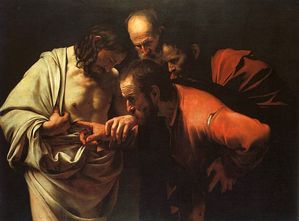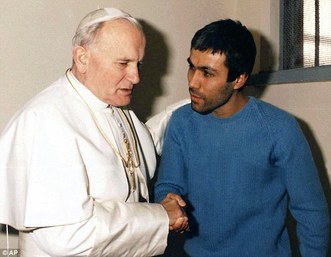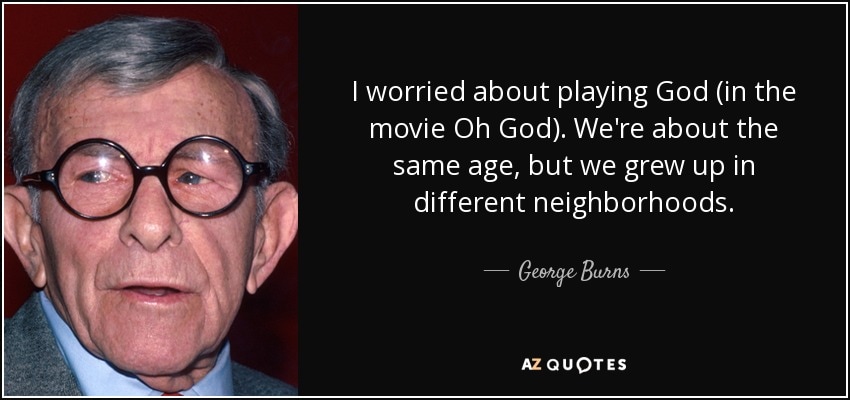|
From Richard Rohr and the Center for Action and Contemplation: Thursday, April 27, 2017
The sacred image that the cross echoes is the “Lifted-Up One,” and it comes from the bronze snake in the desert. YHWH tells Moses to raise up a serpent on a pole, and “anyone who has been bitten by a serpent and looks upon it will be healed” (Numbers 21:8). It is like a homeopathic symbol. The very thing that is killing the Children of Israel is the thing that will heal them! It is presented as a vaccine that will give you just enough of the disease so you can develop a resistance to it. The cross dramatically raises up the problem of ignorant hatred for all to see, hoping to inoculate us against doing the same thing and projecting our violence onward into history. Jesus becomes the seeming problem and the homeopathic cure for the same by dramatically exposing it for what it is, “parading it in public” (Colossians 2:15) for those who have eyes to see, and inviting us to gaze upon it with sympathetic understanding. The prophet Zechariah calls Israel to “Look upon the pierced one and to mourn over him as for an only son,” and “weep for him as for a firstborn child,” and then “from that mourning” (five times repeated) will flow “a spirit of kindness and prayer” (12:10) and “a fountain of water” (13:1; 14:8). We would now call this “grief work”—holding the mystery of all suffering, looking honestly right at it, and learning from it, which typically leads to an uncanny and newfound compassion and understanding. I believe we are invited to gaze upon the image of the crucified to soften our hearts toward suffering and to know that God’s heart has always been softened toward us, even and most especially in our suffering. This softens us toward ourselves and all others who suffer. Following Jesus is actually a vocation to share the fate of God for the life of the world. Jesus invited people to “follow” him in bearing the mystery of human death and resurrection. It is not a requirement in order that we can go to heaven later, it is an invitation so that we can live an entirely full life now. Those who agree to carry and love what God loves, which is both the good and the bad of human history, and to pay the price for its reconciliation within themselves—these are the followers of Jesus—the leaven, the salt, the remnant, the mustard seed that God can use to transform the world. The cross is a very dramatic image of what it takes to be a usable one for God. These few are the critical mass that keeps the world from its path toward greed, violence, and self-destruction. God is calling everyone and everything to God’s self (Genesis 8:16-17, Ephesians 1:9-10, Colossians 1:15-20, Acts 3:21, 1 Timothy 2:4, John 3:17), not just a few. To get there, God needs models and images who are willing to be “conformed to the body of his death” and transformed into the body of his resurrection (Philippians 3:10). They are “the new creatures” (Galatians 6:15), and their transformed state is seeping into history and ever so slowly transforming it into life instead of death. This is the basis for all of our hope—in Christ and for history.  The God of gods –it’s God! –speaks out, shouts, “Earth!” welcomes the sun in the east, farewells the disappearing sun in the west. From the dazzle of Zion, God blazes into view. Our God makes his entrance, he’s not only shy in his coming. Starburst of fireworks precede him. Psalm 50:1-3 (MSG) What a fantastic image of God. No long white beard. No flowing white robe. But a spectacular dazzle of fireworks. A roaring blaze of joy. It conjures images of 4th of July parties. And beach bonfires. Here’s God, entering our lives. Holding a red plastic cup in one hand. A s’more in the other. Lightning bugs swirl around him like twinkle lights in the trees. His smile is inviting. His laughter infectious. He is an old friend. He is a young child. As the fireworks ignite the sky, and the darkness interrupts with brilliance and color, he stares upward to into the endlessness of life. It’s in that moment you see further and deeper than you ever have before. And in that moment you can’t help but reach out and wipe the melted chocolate and marshmallow off his chin. The first church began with a struggle between doubt and faith. But by this very same spirit we begin our journey onward and upward. Yesterday was Earth Day, which was celebrated around the world with a massive March for Science. On it’s website, the event is described as “the first step of a global movement to defend the vital role science plays in our health, safety, economies and governments.” But what if we replaced the word ‘science’ with the word “God?” and imagine the impact would that too could have on our health and well-being. Some may disagree with me. After all, there has been some bad theology practiced in the world. But hasn't science also has a dark history. at times? What science teaches us however, it that through our mistakes, we hopefully evolve or advance forward. Theology and Science should not be at odds. In fact, they share many similar traits. Both begin with a big, fat red question mark. "Where did it begin?" and "How did it happen?" The who, what, when, where, how stuff. As a result, they each give way to some greater unknown and improvable mystery. And they both build their case on this thing called faith. Last week I asked the question "Do you need to understand to believe?" If you were here, you might recall I described belief/faith as the gateway into an intimate relationship with our Creator. And it’s in our being present in that relationship that helps us to understand our faith better, which in theory should progresses towards making the world a better place. This week we return to John’s gospel to ask the question a little differently. (Reading: John 20:19-29) Does your faith need proof in order to understand? If so, what does that proof look like? So let us go back inside the room where Jesus meets the disciples who have locked themselves away. Everyone is there, but Thomas. We don’t know where he is, only that he’s missing. Thomas isn’t one of the main characters as far as getting screen time in the gospel stories. However, he plays a pivotal role for our understanding of who Jesus is, and what his divinity means to all of humanity. The first time we hear Thomas speak is when Jesus receives word about his friend Lazarus, who is sick and dying. While the other disciples are afraid to return to that area where a lynch mob is forming against them, it’s Thomas who says, “Let us go, so that we may die with him.” (John 11:16) Later, when Jesus explains to his friends that he is going away “to prepare a heavenly home for them,” it’s Thomas who asks, “Where are you going? And how will we know the way?” (John 14:5) Thomas is full of faith and full of questions. But unfortunately he is remembered as what? Doubting Thomas! “Unless I see the nail holes and touch his wounds, I will not believe.” This is unjust and unfair. I mean, think about it. His friends are asking him to believe something that is hard to swallow. You don’t have to be skeptic to demand some proof to help you understand how a guy can be alive after being dead for three days. Like any good scientist, Thomas needed more than just the facts to believe; he wants proof that the facts are real. (btw: did you notice, God comes and gives him what he wants?) I think Thomas gets a bad rap. I don’t think he “doubted” as much as he “wanted.” By that I mean he wanted what the others received. When Jesus appeared to them, they rejoiced. Their sorrow and sadness was lifted. Their pain and heartache soothed. On top of the good news, they also received the Spirit of God, which, like I said last week, moved them from being fearful to being faithful. When Thomas returns he noticed the drastic change within his friends. Perhaps it was the way their voices sang with joy. Or their inner light was shinning just a little brighter. Whatever it was, Thomas could tell they’d been transformed, made alive in a whole new way. Thus, he wants what they have. I imagine I would too. The Holy Spirit can be infectious! With a story like this, you don’t have to be a social scientist to know that some people are skeptical about the church, because they doubt God and don’t understand the transformative power of the resurrection. Many of us here still need hard proof or evidence before we would ever become a part of this weird thing called organized religion. I don’t blame you. In fact, I encourage you to wrestle with that doubt. Whatever you do, don’t dismiss it. Instead I invite you engage it…here in this sacred space…as well as out in the world where proof is king. Thomas reminds us that it’s in our doubts that God comes to us, and meets us where we are, to give us the hope that move us forward. The first church began with the struggle between doubt and faith. But by this spirit we begin our journey onward and upward. I am not ashamed of my feelings, nor do I feel guilty for approaching God the way I do. I embrace my freedom to seek a deeper relationship with our Creator, in a way that is meaningful and life-giving. If you believe like I do, that God is not just filled with love, but actually is love, then you will begin to understand that it’s in love we receive the grace and the space for our inquiries. In love, we come to understand that God came to be like us so that we can learn to be like him. Our God is an awesome God. The more I wrestle with faith, …the more questions I ask… or the more ways I express my doubts,… the more answers I receive. It’s in this action that I spend more time in the company of God. And the more time I spend with God the easier it is for me to see…and believe… the answers which are right here in our midst. It’s in our intimate relationship with the Divine that the Spirit goes to work; shaping us, and transforming us into the proof others need to see and to believe. Samuel Coleridge writes, “Christianity is not a theory or a speculation for that matter...it's a life. It's not a philosophy of life, but a life and a living process." We who boldly gather in Christ’s name are called to imitate him by being God’s love and grace in the world. Our life’s call and purpose is to act in the Name of Jesus by being in an intimate communion with him…to be just the proof people need to meet God on their own. One final note: Like Thomas, the other disciples only recognized Jesus by his words of peace, and by the wounds he bore. What this tells me is that our own words and wounds are part of a much greater story…Jesus’ story. Each scar we bear is a testimony to God’s awesome, redeeming power…called love. Who wouldn’t want to be a part of that? It’s our words, and our wounds, that proclaim the Good News, and bear the good fruit. It is our words and wounds that are the blessing Jesus speaks of when he tells Thomas, even blessings are in store for those who believe without seeing. Blessed are you for seeking… for our eyes will be open to the Kingdom of God. God did not take a little of this faith and a little of that to make some kind of spiritual main course. Instead, God sent Jesus to mix us all up to reteach, reshape, and redeem us back to God. In part of an on-going conversation with a friend who, like me, has started a new church, we were laughing about the various ways people have describe the church to us. Like her, we are both hold ordination within the confines of the National Association of Congregational Christian Churches. We both subscribe to the Congregational Way, a form of church polity that, if I were to overly simplify it I'd say it's based on something Jesus said in Matthew 18:20, "Where two or three are gathered in my name, there I am with you also." My friend today said someone once described it like a Chinese menu. You pick one thing from box A, and a couple of things from box B and C. While that is a creative way to explain a church's polity, it does not do justice to the church itself. It only makes me think of the old joke about Chinese food in that you can get your fill but you'll be hungry in a half-hour. I can see where some people get this impression of not only the Congregational Way, but most churches in general. Churches today, in order to attract more people, tend to offer too much. The menu is full but there is not a whole lot of nutritious substance. OR on the other other hand we offer too little or too much of the same old stuff. People are either walking away hungry for more or simply walking away for something else, like sleeping in. During the time between Resurrection Sunday and the Pentecost Sunday (when the Spirit of God descended upon the people after Jesus ascended to heaven), the followers of Jesus are in flux. Little do they know what to do or make of what just happened, never mind that God is at work yet again as the church incubates in the womb of faith. God did not take a little of this faith and a little of that faith and mix it up into some kind of spiritual main course. No. God specifically sent Jesus to reteach us, reshape us, and reform us back to God...redemption. One person. One job. It's a simple concept that I believe many churches today have forgotten or ignored. They are too busy in the kitchen mixing up all the things that seem to work with this generation and that target market, that they overlook the basic, obvious purpose of the Gospel message of Jesus. To love. As a result so many churches have lost their flavor, or unique taste. Instead, they have become so much like the culture they're trying to lure in that they have become no different than fast-food. McDonald's...same flavor no matter where you are. But guess what? Different people have different taste. They also have different opinions and different interpretations of scripture. But it's more than different rituals and theologies. Some are meat eaters, other vegetarians. Some smoke, drink and cuss...and then there are those who don't. There are different languages, different music taste, different fashion sense. Our differences are what makes the church unique and well...different. However, the one thing that remains the same is God, whose love for us is great that God is willing to come to us and serves us up a hearty, heaping helping meal of holy grace (hmmm, is that why we say 'grace' before each meal?). As I seek a new way of doing church (which in fact is a very old way to do church) I am inspired by a poignant question Leonard Sweet asks. "Can the church stop its puny, hack dreams of trying to 'make a difference in the world' and start dreaming God-sized dreams of making the world different? Can the church invent and prevent, redeem and redream, this post-modern future?" God, I hope so because I have no idea what I'm doing. Sweet challenges us to get back to the basics, the simplicity of being God's children in the Kingdom of Heaven. We do this in the way we love as God loved us, or in the way we practice forgiveness as God forgives us. As my wife Kathleen said, "I don't want to go to or be 'the Church,' I want to be church!" The way God intended. One people, united by our diversity and faith. The church is not like a Chinese take-out menu. Instead it's more like Beach Road Chicken, a small 'mom and pop' homestyle restaurant in Jacksonville Florida that's as old as time. My mom went there as a kid on her way home from the beach, and she took her family there when we'd go to visit family. In college, my friends and I often went there for the all-you-can-eat chicken supper whenever we got tired of eating from the school caferateria Imagine entering into an old house that had been reconfigured as a restaurant. You sat whatever seat was available at the long, picnic tables. And you didn't order a thing because there was no menu. Instead they brought you plates of food; fried chicken; rice, corn and peas, homemade rolls and gallon jugs of sweet tea whether you wanted any of it or not.  As I look back, I can envision the last supper Jesus had with his friends probably looked like this. A holy communion, a gathering of two or three, where Jesus is in our midst breaking of bread and sharing the cup. He too looks different. A bit overweight perhaps. Sweaty from the humidity, his neck red from doing hard work in the hot Florida sun. Maybe he's black. Maybe he speaks Spanish or German. Maybe he's tattooed or overly adorned with body piercings. Maybe he's a surfer with salt-crusted hair or a businessman grabbing a quick bite to eat on route to something more important. Maybe it's the person passing the peas your way, or placing a plate of fried chicken on the table. Or maybe he's the person you're bumping elbows with as you gnaw on a chicken bone; savoring the meal along with everyone else. I think this is how Jesus wanted us to do church. To be his body in the world; sharing the table and food with friends and strangers alike. This is the way he wanted us to do communion, for this is exactly how we not only remember his teachings of love, but put them to practice as well. This is how we do church and make a difference in the world. It starts by dreaming God-sized dreams of peace and justice and grace for all who come to the table of God's blessing and love. Today, when I googled Beach Road Chicken I noticed they've expanded a bit, adding tables and a few more items to the menu. But the pictures that were posted seem to reflect how the gathered community is the same. Diverse, faithful, and hungry. Just like church, this is still the place to go to get your fill of something special and you leave completely stuffed and satisfied. To get a better understanding of who Jesus is, historically and presently, I highly recommend reading this article from Christian Century: https://www.christiancentury.org/article/poor-we-will-always-have-us
It begins with the subhead, "Jesus isn't pitting himself against poor people. He's one of them." The article draws from the Book of Deuteronomy, the most cited Jewish text in the New Testiment. Upon reading Deuteronomy I began to see and understand a deeper, thicker, more powerful and practical Christ. It is one of five books that make up the Torah, the Jewish book of life. Having recently reread Deuteronomy, it's impossiblefor me to see Jesus and not see him as the the living Torah. This is a long winded way to say read this article Adapted from Liz Theoaris's new book "Always With Us? What Jesus Really Said About The Poor," published by Eerdmans this month. https://www.christiancentury.org/article/poor-we-will-always-have-us "observing Sabbath is about copying or emulating God. This combination of piety and economic practice are merged: rather than choosing between helping the poor and worshiping God, the Deuteronomic Code demonstrates that the way to worship God is to structure society around everyone’s needs. God’s intention with God’s laws and commandments is to eliminate poverty and inequality on earth." The question isn't so much what God looks like, but if people see God when they look at you? There's a classic story about a six–year–old girl who was drawing a picture in class one day. Her teacher noticing how focused the young artist was asks, ‘What are you drawing?’ The little girl cheerfully answered, ‘I am drawing a picture of God.’ The teacher was surprised and rightly so. With all seriousness she said, ‘But nobody knows what God looks like!’ The little girl carried on drawing and replied, ‘They will in a minute.’ This notion that we don't know what God looks like irritates me. In Romans, Paul writes of seeing God in nature, arguing that we have no excuse to not knowing God. Fifteen hundred years later St. John of God writes about God as "nada Dios," God is nothing. As in God is no thing but all things. (read more about Apophatic Theology here) By the 20th Century, God is a little old man who looks a lot like George Burns. So which is it? Old man with a long white beard? Massive sequoia trees in California or Mt. Kilimanjaro in Tanzania? Or Darkness? Perhaps God is no-thing but all things? The story of the little girl drawing in class does not reveal what she envisions, or if what she drew convinced the teacher to see God differently. But the Bible gives us a clear picture of God's nature and physical appearance(s) and a greater understanding of who God is: a fiery cloud, a burning bush, a passing wind, a thunderous voice, a poor, vulnerable baby, a carpenter's son, a loving and forgiving parent, a rich landowner who throws parties...a king who eats with the downcast and dogs of society, a great conquer and champion for the poor and weak who rides into town on a small colt, and let's not forget... a radical rebel suffering injustice and abuse from his own kin. He is the Christ, Israel's Messiah. Beaten, naked, and dying on a Roman cross. This is not what gods are supposed to look like. Especially not the one true God who is above all other gods. And yet that is exactly who God is. Why? Because that's what love looks like. And what faithfulness looks like. And what salvation looks like. Yes, God is complicated. But God is also clearly visible and attainable. Always ready with open arms to take you in and throw a great party in your honor. God is love. When you see Love you see God. And when you need love you can always count on God to give it to you unconditionally. If you need to give God the face of George Burns or Morgan Freeman then go right ahead. After all, God told Moses his name is, "I Am" as in I am anything and I am everything. By this account, no matter where you look you should see God. I believe we are made in God's image, which is to say there is a part of God's likeness in me. It's like a divine thumbprint of sorts stamped into each one of us. Being a part of God's image comes with some responsibility. It means we are to live and love, to forgive and to heal, to be quick to listen and slow to speak, and always present in mercy and charitable in grace. You know, just as God does for each one of us. So the question isn't what God looks like but do people see God when they look at you? In other words, do your actions paint a portrait of Jesus so people can see God in their midst? Tomorrow is Good Friday. And in preparation I need to transition my Lenten mantra, " Yes, Jesus" into something that I can take with me into the newness of the Easter season. Today, I share it with you in hopes that it will cause you to stop, if only for a moment, and ponder the greatness of God in your midst. i inivite you to share this mantra with me every time you engage with another: "I see...the image of God...in you." And then act accordingly. God Sticks To Us. God Sticks By Us. I begin this post with the confession that I am not a huge sports fanatic. But if you know me, you'd know I have my favorite teams that I cheer for. Other than the Tampa Bay Buccaneers for football, all the other teams are from Los Angeles (a place I have called home since 1989). One team in particular, I have loved since my childhood. And that is the Los Angeles Lakers. For decades they have dominated the NBA in one way or another. Except for now. The last few season they have, for lack of better or kinder/gentler word, sucked. Every serious sports fan knows that there will be some good years and bad years. (As for my beloved Bucs there's only been one good year: 2003.) It should go without saying, a true fan sticks by their team no matter what. For as long as I can remember, that's been pretty easy to do with the Lakers. Not so much now. The last three years have been the worst in the franchise's history. Which has made being a fan difficult. And humbling. Just this week, a group of Jr. High School boys heckled me for wearing my Lakers hat to P.E. class. I try to tell them that you have to love your team no matter what, good times and bad times. But it didn't stop them from laughing at the sorry state the Lakers are in. I get it. We all want our team to be the best because we all want to be on the winning side. That's why nobody ever cheers for the Washington General, but instead root for the Harlem Globetrotters. My own kids are the perfect example. They don't particularly like sports, but on those rare occasions that we watch a game together, they root for the team who's ahead. Even if it means switching in the final minute, or the bottom of the 9th. This drives me nuts! Imagine if God behaved this way. What would life be like if God had no loyalty? How would that affect your relationship with him or with others? The bible teaches us that God shows no partiality. And for good reason. It evens out the playing field. God, in fact, is faithful to a fault by our standards. But we could learn a lot here. You see, God does not give up on Israel nor on us...no matter what. In his letter to the Romans, Paul says God loves us so much that he is willing to give us up to our sin. But, as a wise person replied, God loves you even more to leave you there. Simply put, God is faithful. And God's faithfulness not only sticks to us, it also sticks by us. God's love for us is so real, so passionate, that nothing will stand in God's way to shower us with an abundance of true, unbias love. As we draw near to Passion Week, we are reminded of that love that John's gospel captures in chapter 3, verse 16. Good Friday is a perfect reminder of God's faithfulness and love for the world. There on the cross, Jesus did not give up on us or abandon us. Instead Jesus gave himself for us. This is God's grace. Given to you, me, and everyone. Simply because God loves you, me, and everyone. Winners and losers alike. And just as the Lakers continue to chase after another NBA championship...God continues to chase after us.
 "Four bullets hit Pope John Paul II - two of them lodging in his lower intestine, the others hitting his left hand and right arm. This assassination attempt on the Pope in May 1981 left him severely wounded and with considerable blood loss - his health was never the same again. In July 1981 the perpetrator, Ali Agca, was sentenced to life imprisonment. Pope John Paul II asked people to pray 'for my brother Agca, whom I have sincerely forgiven'. Two years later, he was to take the hand of Ali Agca, then in prison, and quietly tell him that he had forgiven him for what he had done (even though his would-be killer had not asked for forgiveness). He developed a friendship over the years, meeting Agca's mother in 1987 and his brother a decade later. In June 2000 Agca was pardoned by the Italian President at the Pope's request. In February 2005 Agca sent a letter to the Pope wishing him well. When the Pope died on 2 April 2005, Agca's brother, Adrian, gave an interview saying that Agca and his entire family were grieving and that the Pope had been a great friend to them. Pope John Paul II's response of love and mercy is exemplary. God's love and mercy is even more extraordinary because 'At the cross of Jesus, pardon is complete. Love and justice mingle, truth and mercy meet.' In my struggles to forgive certain people who have harmed me or my family, I read this story with hope and joy, even if it means I am also seething with resentment and pain. When asked about forgiveness, Jesus teaches we must forgive "70 times 7!" (Matthew 18:21-22). I believe Jesus is telling us to forgive a person that many times for each account. This doesn't mean you let people walk all over you or that there cannot be justice in the world. But what he is saying is that each time your heart breaks because of something that went down that needs to be forgiven, then forgive, forgive, forgive. I think Jesus is reminding us that our anger and unforgiving heart bind us to an unhealthy way of life; one of anger, hate, retaliation, war, etc. He always point back to God, whose mercy and forgiveness frees us and reconciles us in love and peace. Same is true about our relationship with others. In the same way, Jesus' healing ministry was all about forgiveness. As was his death and resurrection. Jesus taught forgiveness is one of the greatest forms of love, especially when we forgive an enemy. This is radical love. But it's the kind of love God has for us. Jesus is that perfect love. And gave us that perfection with his entire being. By his sacrifice, the world will be healed and redeemed through perfect love, and forgiveness. Think about who you need to forgive and ask yourself if you can love them just as God loves and forgives you. Then pray: "Lord, help me to love, like Jesus, in an all-embracing way. Help me never to seek revenge but to extend mercy and forgiveness and love...even upon my enemies. Amen." Inspired by my morning devotional from "Bible in a Year 2017" provided by Nicky Gumble, the Vicar of HTB church in London, and the pioneer of Alpha. |
Ian MacdonaldAn ex-copywriter turned punk rock pastor and peacemaker who dedicates his life to making the world a better place for all humanity. "that they all might be one" ~John 17:21“Prius vita quam doctrina.”
~ St. Thomas Aquinas (1225–1274) * “Life is more important than doctrine.”
Archives
June 2024
|


